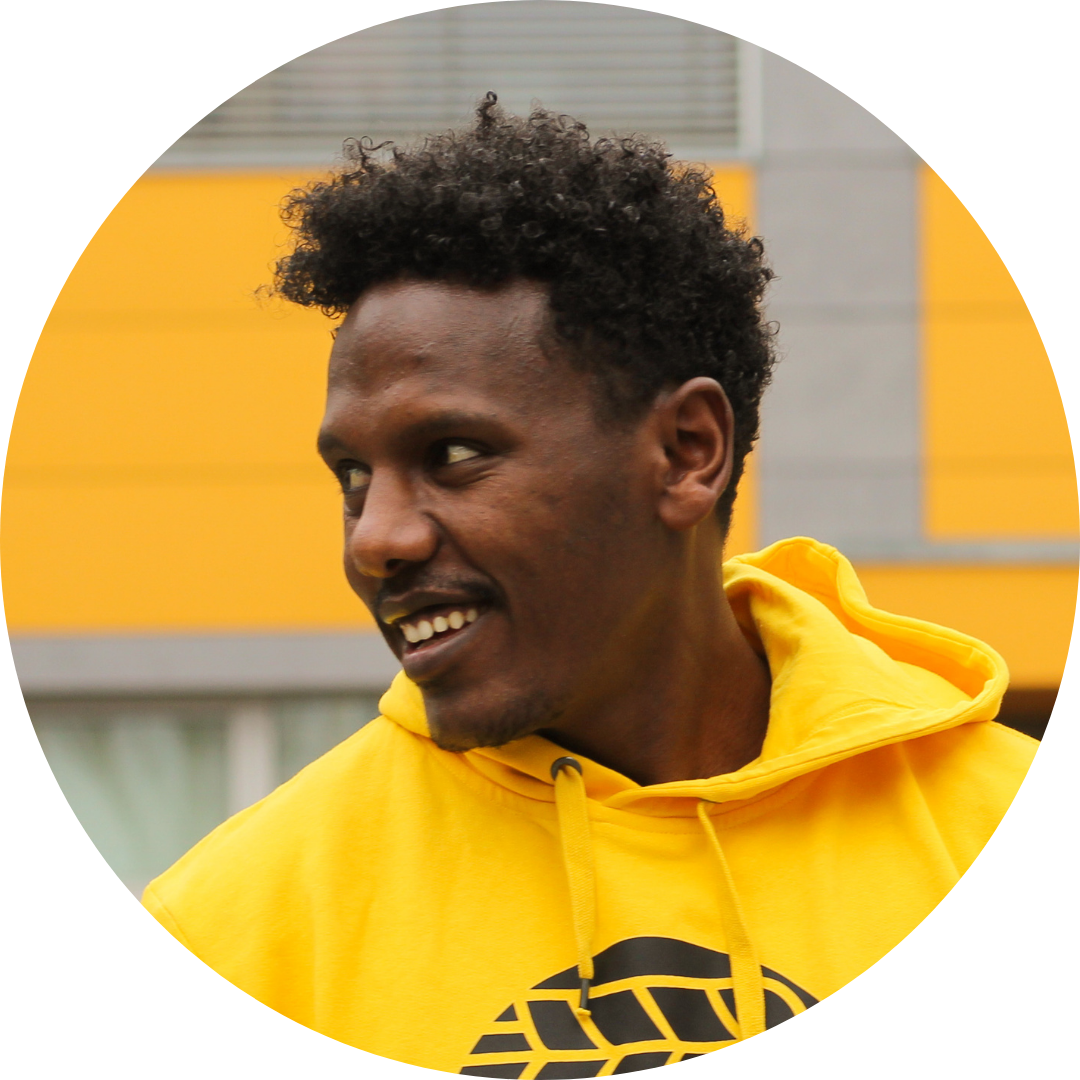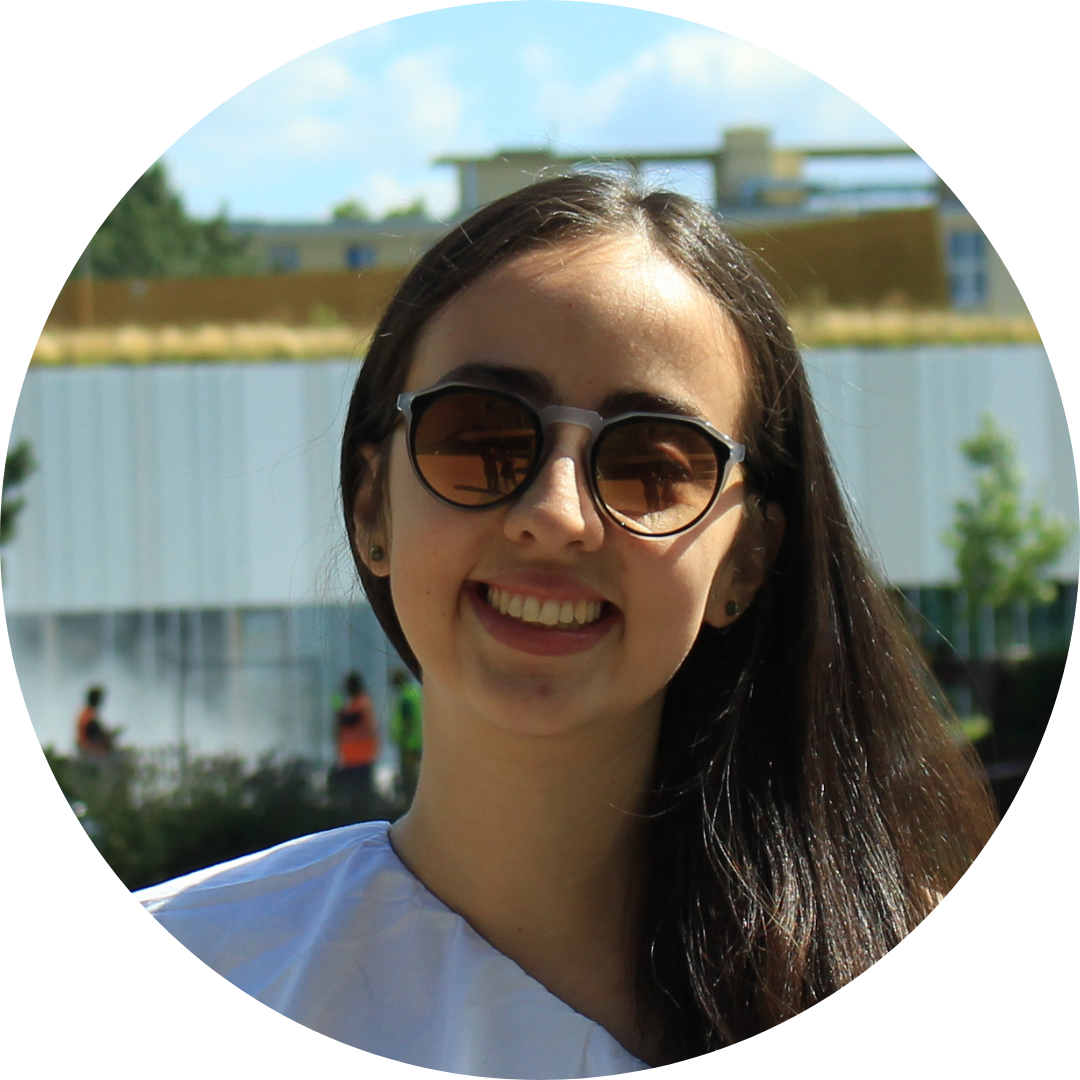
Submit Your Application
Applications are accepted:
September 15, 2025 till January 15, 2026
Application fee:
CZK 750 per programme
Pay admission fee by:
January 15, 2026
Admission Process
BACHELORS: SCIO exam
MASTERS: Online interview in English
After Admission
Foreign education recognition
(end of September 2025):
Accomodation
Visa information

Affordable living costs
CZU offers accommodation at its student dormitories on campus (approx. 250 EUR/month) and also has several off-campus dormitories. Costs of food, public transport and other living costs are relatively low in the Czech Republic compared to Western Europe.
Safe and beautiful location
The Czech Republic is one of the safest countries in the world and its capital Prague is one of the greenest cities in Europe.
International student community
We have more than 20,000 students on our campus. One in three students is international. Our students are involved in several student organizations (e.g. Erasmus Student Network, AIESEC, CZU Prague Formula Racing, ...). The campus is full of activities such as Welcome Week, Prague Science Film Fest, Miss Agro, hockey match, board game nights, sightseeing trips and other events.

Greenest campus in Czech Republic
Campus CZU Prague offers many services in one place. From spacious lecture halls to affordable dormitories and canteens, a large library, live entertainment, multifunctional sports centres and plenty of green space. Visit our campus during Open Days!
Diverse range of possibilities in the Labour Market
Our graduates are employed in agriculture, horticulture, animal husbandry, plant protection, agricultural product quality, agribusiness, natural resource management, waste management, landscape architecture, rural development and other areas important to the national economy.

1. I am an international student. Can I apply?
Yes, you can apply. You need to prove that you have finished the required level of education through:
-
- a) An officially certified copy of a document certifying the equivalence of foreign education - the so-called Nostrification
- b) Request an assessment of your foreign education as part of the admissions procedure at CZU (internal evaluation of foreign education at CZU)
2. How do I apply? Where can I find information about the admission procedure?
- All information can be found on the page about Admission procedure. For more detailed information about the entrance examination, please refer to the invitation letter which you will receive after the application deadline.
3. Where do I find the English-taught programmes offered by this faculty?
You can find all our English-taught programmes and detailed information about them here.
4. I am not sure, which field or study programme I would like to study. Could you help me?
This link might help you to decide.
5. Are there any grade requirements from particular subjects that I need to fulfill during my secondary education to apply for a bachelor´s programme?
No, there are no grade requirements. You need to provide us with an authenticated secondary school leaving certificate and authenticated transcript of records from the last two years of study and pass the entrance examination. More information about the requirements is available here.
6. Application fee (750 CZK) – where and when can I find information about payment?
Instructions for payment will be displayed after the application has been created, personal details and address have been filled in, and the e-application has been submitted at https://is.czu.cz/prihlaska. The fee is non-refundable at any stage of the admission procedure.
7. How much is the tuition fee and how to pay it?
Each programme has a different tuition fee, which has to be paid once a year before the enrolment into the study. Applicants can pay the tuition fee using the international payment platform: Convera GlobalPay for Students. More information on tuition fees can be found here.
8. Are there any scholarship opportunities?
Our faculty offers merit scholarships to students who achieve excellent study results. More fully funded scholarships are available from the Ministry of Education, Youth, and Sports. Find out more here.
9. What do I need to bring to the entrance examination?
Valid photo ID (ID card, passport). More detailed instructions are given in the invitation to the entrance examination. Further information on entrance examination is available here.
10. What can I expect at the exam?
The exam for applicants will be in the form of an interview held in person or online, focusing on the level of English, motivation to study, and knowledge required for the study of the programme. More information about the entrance exam can be found here.
11. I am not able to attend the entrance exam on the set date. What can I do?
At the latest on the day of the set date, send a request for an alternative date for the entrance examination via email to iro@czu.cz.
12. Is it necessary to authenticate my secondary school/bachelor’s/master’s diploma and transcript of records for the admission procedure?
Yes, these documents need to be authenticated according to the country in which your documents were issued. More information on document authentication is available here.
13. Where can I find the study plans (list of courses) for each year of study?
You can find the study plans of all English-taught programmes on the Faculty of Agrobiology, Food and Natural Resources (czu.cz) website.
14. Can I apply to more than one programme?
Yes, you can. The number of applications you submit is the number of times you pay the application fee.
15. Where do I find the academic year schedule?
You can find the academic year schedule in the Study Documents section.
16. When can I start the recognition of my education through the internal evaluation process?
You can start working on the authentication of your documents straight away. However, you need to pass the entrance examination before you can apply for the internal evaluation of foreign education.
17. Do I need to send my academic documents to CZU by post, in hard copies?
We require your documents in hard copies delivered by post. More information on document submission can be found here.
18. Do I need to send original documents or are copies sufficient?
Please do not post original documents. We accept notarized copies of your academic documents. More information on this can be found here.
19. Do I need to post my documents in my language or in English/Czech?
We require notarized copies of your documents in your language, firmly bound with the official translation by a sworn translator. More details can be found here.
20. Who can translate my academic documents?
Only registered and authorized official sworn translators can translate your academic documents. Translations from unregistered translators or agencies will not be accepted.
21. What is an eligibility statement?
The bachelor's programme applicants should submit an eligibility statement from their secondary school. The template is provided by CZU.
22. How long will the internal evaluation take?
The process may take 2-8 weeks, depending on the number of applications.
23. For how long is the internal evaluation of my documents valid?
The recognized documents are valid only for the specific programme in the particular academic year. Re-application is needed for other programmes or future years.

Stella Lukste - Latvia
I do not work in the field of my study, however I've gained some soft skills that were important for my position such as time management, proactive thinking and a hands-on attitude. What I enjoyed most were the projects and research papers which were required in most classes. The accessibility of study materials (provided in the learning tool Moodle or by the lecturer in email) was also excellent.
Teshome - Etiopia
The Czech University of Life Sciences provides everything which is required for a better learning environment. Personally, I like the proximity of the university accommodation to classrooms and laboratories. The university has the very experienced professors who can share and are willing to share their infinite knowledge to students. Additionally, the university has organized sport and leisure centers to keep students physically active. These and other qualities that I didn't mention here make CZU a very good study destination in Central Europe.
Laura Lamilla Tamayo - Colombia
I gained a broader perspective about topics related to soil and water in agricultural applications. CZU and the programmes taught in English are very international, I had a great time studying with people with completely different backgrounds and professions with whom I made close ties. I also had the opportunity to learn more about academia and decided to pursue a career as PhD researcher at CZU. In my research I focus on the production of microalgae for aquaculture applications.
War War Mon - Myanmar
When I completed my bachelor´s degree in Agricultural Sciences, I wanted to study a master's degree with a specialization in environmentally-friendly agriculture as I was interested in food supply for the growing population without harming the environment. I found this programme through the university website and thought it would well match my interests.
The programme was taught by professors and lecturers experienced in their fields through collaboration between academics with world-class expertise in diverse aspects of advanced technologies. It allowed students to gain practical experience about a wide range of environmentally friendly technologies such as nutrient management technologies, irrigation technologies to save irrigation water, and soil conservation technologies. The study programme focused on studying soil and water protection and utilization of natural resources without bankrupting the existing resources. I also found the International Relations Office faculty coordinators very helpful, they truly cared about their students.
Studying at the Faculty of Agrobiology, Food and Natural Resources enabled me to develop personally and professionally. I had a chance to interact with international professors and students in the heart of Europe and was able to discover new cultures and traditions around Europe. As an international student, I have absolutely loved my student life and study programme and would highly recommend it to anyone thinking of applying.
Kathy - India
I studied my BSc in Sustainable Use of Natural Resources and continued with a MSc in Natural Resource Management and Ecological Engineering (joint programme with BOKU, Vienna). What I loved about the programmes is that classes are split into Lectures and Seminars, so you get to put to practice what you learn and spend plenty of time in the laboratories. In my master´s studies I had the opportunity to go to Vienna for a semester, I got to experience new cultures and learning styles, which I believe really helped me with self-growth. I am now a PhD candidate at CZU, focusing on soil science and contamination, with the opportunity to put to knowledge everything I have learnt and pass on the knowledge to the students I teach. Also, we have llamas/Alpacas on campus, there’s no topping that!
Lamsen Nkhata - Zambia
Choosing the double degree program between the Czech University of Life Sciences in Prague and the University of Pisa in Italy was a deliberate pursuit of a comprehensive education in biosafety, food quality, sustainable agriculture, and food security. The decision was grounded in recognizing the unique strengths of each institution—CZU's expertise in sustainable agriculture and food security and Pisa's emphasis on biosafety and food quality. My summer on ERASMUS in Italy provided a glimpse into the academic and cultural vibrancy of the University of Pisa, solidifying my anticipation for the double degree journey focused on biosafety and food quality. Reflecting on this journey, I'm grateful for the invaluable experiences gained from both institutions. Prague and Pisa have shaped not only my academic identity but also fuelled personal growth. The double degree program is more than an educational pursuit; it's a voyage of self-discovery, leaving an indelible mark on my academic and personal narrative, with a commitment to biosafety and sustainable agriculture at its core.







